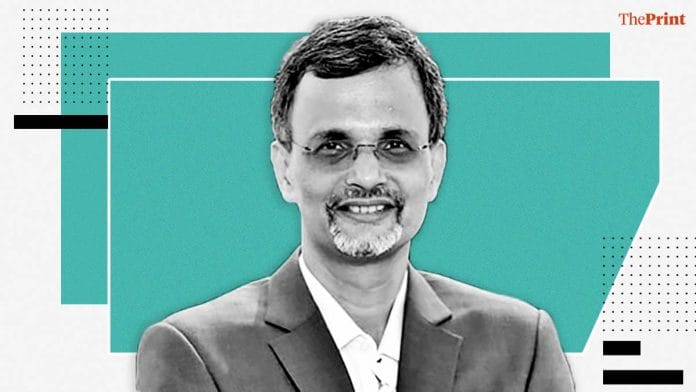New Delhi: Emulating China may not be easy for India, given the high cost of production locally as well as the large compliance burden faced by firms, according to V. Anantha Nageswaran, member of the Prime Minister’s Economic Advisory Council.
Speaking at a virtual panel discussion organised by the S.P. Jain Institute of Management and Research, Nageswaran made a case for reducing the number of rules and regulations for businesses.
“Emulating China from where we are, with the kind of high cost of production and the legislative and compliance burden that our businesses carry, is not going to happen. Right now, that is why Vietnam and Mexico and Bangladesh are getting the industries moving out of China and not India. We need to face up to the fact that we are not there yet,” Nageswaran said.
“But we have to begin somewhere,” he said, adding that it is a process and is not something that will be completed in 3-6 months, and insisting that the focus has to be on increasing firms’ productivity if India has to capture a share of the export pie, especially at a time when world trade is not happening.
“A policy of simply whittling away the unwanted rules and regulations will be a start,” he said.
Nageswaran also favoured the government providing support to industries, but with a quid pro quo arrangement, where the firms are tasked with increasing productivity and output.
Also read: Industrial production contracts by 35% in May, but manufacturing shows signs of revival
‘Govt right in preserving fiscal firepower’
Asked about the “inadequacy” of the demand stimulus offered by the government after the Covid-19 lockdown, Nageswaran said the events on the border showed that the government was right in preserving the firepower as additional spending may be required in defence.
He, however, pointed out that there is scope for the government to provide support to businesses, subject to conditions like improving productivity.
“The support given to businesses from the beginning has been on the parsimonious side. You can err on the side of being liberal and then always roll it back,” he said.
Nageswaran favoured extending liquidity support measures like the Rs 3 lakh crore emergency credit line support to micro, small and medium enterprises to cover more firms.
“The government is not in a position to give outright grants and increase its on-budget deficit. The government will be undoing its work if sovereign borrowing costs go up… Liquidity route is the compromise. I favour continuing with the approach, but making the beneficiaries net wider to even allow MSMEs with higher turnover to borrow,” he said.
Nageswaran also urged the government to restore the credibility of macroeconomic data, both at the state and central level.
Also read: Imperative banks raise capital as pandemic could increase NPAs, says RBI’s Shaktikanta Das
‘Relief measures, not demand stimulus’
Also speaking at the panel discussion, Pronab Sen, former chief statistician of India, said the measures announced by the government were just for relief, and not demand stimulus.
“Cash transfers were a good idea but the amounts were a joke. It should have been at least Rs 3,000-4,000,” he said, urging the government to take demand stimulus measures immediately.
The government had announced cash transfers into Jan Dhan accounts, but the amount was as low as Rs 1,500 spread across three months.
Sen also warned of a bloodbath among MSMEs if demand doesn’t pick up soon. He said if demand does not pick up by around December, supply will be hit as many units will cease to exist.
“If you have to do a demand stimulus, do it now. Else, you may have missed the bus,” Sen added.
Also read: India has fiscal and monetary space to boost demand: Principal Economic Advisor Sanyal







This is classic The Print style – a negative sounding headline for clickbait, but what Mr Nageswaran actually said is something totally different.
That’s just a polite way of saying you cannot fight corruption. From every little permission to electricity connection, land transfers,port clearances. we just don’t have a system to honor our job creators. You cannot fight competition with such high rent seeking governments and public services. You’ll be priced out of the markets, any markets even domestic. It’s a good thing realization has come from the Prime Ministers Office. Jai Hind and Atmanirbhar Bharat …